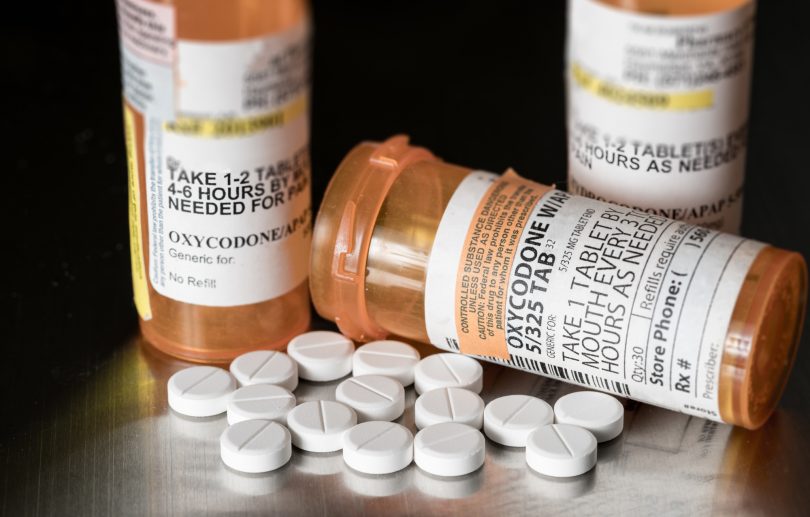Drug addiction doesn’t look the way it’s portrayed in after-school specials. No one approaches you at midnight to offer your free drugs, for one.
In fact, the person offering some of the most addictive drugs available right now could be wearing a lab coat and writing on a prescription pad.
Painkiller addiction isn’t merely a problem; it’s a full-fledged epidemic. The U.S. Department of Health and Human Services traces the issue to the 1990s when doctors began prescribing opioid pain relievers to patients who had just gone through major surgery or a similar procedure.
The drug companies assured doctors it would be fine because their products weren’t addictive. Over two decades later, several states are suing drug companies for overselling the benefits and underselling the risks.
Those painkillers include drugs like Vicodin or Oxycontin, while drugs like heroin are street opioids that remain illegal in all circumstances.
You can’t spot prescription drug abuse if you don’t know what to look for. Keep reading for information on 6 signs of painkiller addiction.
1. Long-Term Usage
It’s common for your dentist or oral surgeon to hand you a prescription for painkillers after performing a tooth extraction or similar procedure. But in 2018, that prescription should come with a stern warning not to use the drugs for longer than directed.
The reason painkillers are so potent is because they both block your pain and give you a giddy or euphoric sensation in its place. That kind of feeling is hard to let go of without a fight.
It’s easy to invent excuses and say things like “Sure, it’s been months since the surgery, but what if the pain suddenly comes back?” It doesn’t take much for someone to convince themselves that continuing to take painkillers is the “safe” option.
2. Lying and Stealing
Doctors are more cautious about prescription painkillers now, which means people who are addicted will resort to visiting numerous medical professionals in hopes one will give them what they want. They’ll lie and say they have a nagging injury that they can’t seem to shake.
One of the most alarming pill addiction signs occurs when people intentionally hurt themselves but make it look like an accident, all so they can request painkillers without being questioned.
If that doesn’t work, they may start stealing pills from friends, family members, and even strangers. If you catch them stealing, they’ll deny that it to your face even as they rationalize it internally.
3. A Declining Social Life
Stealing from loved ones will ruin relationships, but it’s not the only way painkillers can interfere with your social life.
If a friend asks you why you’re still on Vicodin and you snap, “That’s none of your business,” that means you’re shutting people out rather than leveling with them about what’s happening.
Denial is one of the biggest signs of prescription drug abuse. It’s human nature to tell ourselves that we have everything under control. If someone disagrees with that, an addict often lashes out rather than allow themselves to think, “Hmm, maybe they have a point.”
As addiction gets worse, it will become more noticeable to others. It’s typical for the addicted person to respond to this by ramping up the self-imposed isolation.
4. Anxiety and Obsessiveness
One of the biggest painkiller addiction signs is being unable to think about much else besides the drug.
We’re supposed to use our mental energy for things like work and chores and deciding what movie we want to see this weekend. An addict channels that energy into thinking about the drug.
Even getting a dose of the preferred painkiller only quells the obsession for a short time. They may constantly check and recheck their supply as they try to calculate how much longer it will last.
5. Changes in Appearance
In the early days of opioid use disorder, the person abusing painkillers may appear normal. That will change as the addiction progresses.
They might either gain or lose a lot of weight. They’ll shower or bathe less often because personal hygiene isn’t a priority like it used to be.
If a friend makes a reference to something that happened last week, the addict may shrug and say they don’t remember it. Their memory isn’t what it was before they started abusing painkillers.
The signs of an addict can also appear on the face when someone looks tired, haggard, or just not all there.
6. Trying to Quit and Failing
Some addicts reach a point where they decide they’ll quit without telling anyone, because how hard can it be? Then the physical withdrawal symptoms kick in.
You may physically tremble and feel like you’re going to vomit. Instead of being mellow and cheerful, you’re agitated and want to yell at anyone who dares to look at you funny.
At night, you hope to sleep but can’t. You’re sweaty and sore, and you end up going back on the pills to avoid feeling like you’re being tortured.
Enduring physical withdrawal symptoms is one of the trickiest parts of quitting. It’s why so many people try and fail multiple times before it really sticks.
People in the throes of addiction don’t need a DIY solution to combating withdrawal symptoms. They need help from a licensed detox facility staffed by trained medical professionals who know how to help patients through the worst moments.
It still won’t be pleasant by any stretch of the imagination, but having a team of medical staffers around at least makes the process bearable.
Responding to Signs of Painkiller Addiction
If one of the signs of painkiller addiction mentioned above sound familiar, you should be concerned that you’re on a path to getting addicted.
If several of them sound familiar, then there’s a good chance you’re already in deep and will need some assistance getting out.
It’s not a quick process, but it’s worth it when you can emerge from treatment as a happier, healthier person.
If you’re ready to start, we’d like to help. Take a look at our list of treatment centers sorted by state or contact us for more hands-on help at (877) 322-2450.


















People addicted to painkillers is so common these days. They believe if their doctor prescribes it, it must be ok. I know a few housewives who maintain a painkiller prescription for “chronic pain” because they don’t see themselves has a having a problem if their doctor is ok with it.